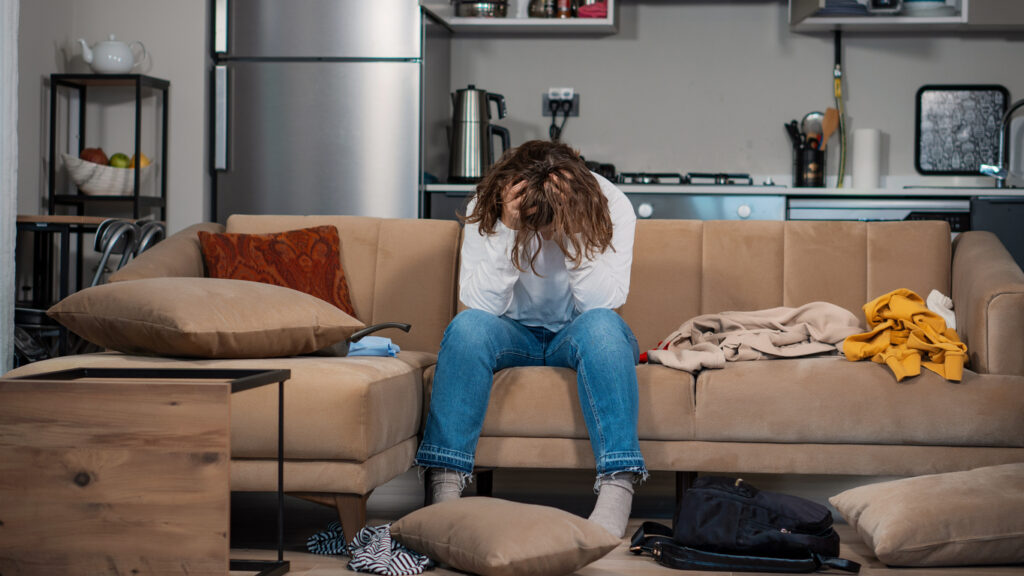Its really hard to explain what the word depression means. Many people have misconceptions about what the reality of depression is. Or even what the face of depression looks like.
You can be out a party and be depressed
You can post photos of you smiling and be depressed
You can have great friends and be depressed
You can have a loving partner and be depressed
You can show up to work and be depressed
You can get dressed and look great yet be depressed
You can feel exhausted and be depressed
You can be hyperactive and be depressed
You can go out for walks and be depressed
You can exercise and be depressed
You can drink too much alcohol and be depressed
You can take drugs and be depressed
You can eat too much or too little and be depressed
You can stay in bed and be depressed
You can stop taking care of your hygiene and be depressed
You can manically clean and be depressed
You can suffer from insomnia and be depressed
You can sleep all the time and be depressed
You can feel totally empty and be depressed
You can be struggling financially and be depressed
You can be very affluent and be depressed
The black cloud of depression has so many faces. Do you recognise them all ?

Living with depression can often feel so overwhelming. It is hard to put into words sometimes the challenges that a person faces when they feel depressed. Sometimes a persons mood can become so low that even the most basic tasks feel impossible. Other times a person may be going through life doing all of the basic tasks that they need too but feeling totally detached and numb.
There is no set script for the experience of depression. Everyone’s experience is unique and individual. For some people they may feel the days are difficult and their mood is low – for others they may feel that they cannot face living any more. And even if they aren’t actively planning suicide – they might be struggling with suicidal thoughts far more frequently than anyone realises.
The constant internal battle inside the head of someone with depression is exhausting. Can you imagine feeling so low all the time and trying to fight it. Trying to get out, to do things, to make things happen and to achieve things. Can you imagine trying to attend social events but feeling consumed with thoughts of self-hatred and at times overwhelming anxiety. The struggle is real. The struggle is all consuming.

It can be difficult at times to understand a person’s struggle with depression. It can be hard to know what to do, what to say or even how to be around them. The important thing to remember is that no matter how severe a person’s depression is, they will still need help, and they will still need the people around them to be supportive and patient.
Often people living depression feel that they aren’t worthy of help or that they don’t want to burden people with their problems. In addition to this it can be difficult at times to talk about the reality of the internal struggle that they might be having. The result of this is that a person keeps everything to themselves – often making them feel so much more isolated and even lower in mood. Its so hard and crippling to face depression – its even harder to face it alone.
Reaching out can feel very daunting at times and taking that initial step can be scary. However once people start to gradually open up and let others know a bit about what they are feeling and experiencing, then things can get slightly easier to manage. A support network is vital when someone is feeling low – and that network can look different for every individual. It is often working out who and what is best for people, and what makes a positive difference to their life.

In addition to a support network it is also important to try and take things one step at a time and to work out what things can be done in an individuals day and week to make life easier for them to manage. This isn’t easy and it takes some time and focus in order to make some changes. Friends and family can help of course but often people need further support and intervention.
That’s why seeing a therapist can really help, even at the first signs of an issue / problem. Feeling very low and down can often come from a sense of being isolated and feeling alone. People can begin to feel as though they have to cope with everything, and that they cant tell people how they are feeling. Sometimes there is a fear of being a too much for people, or sometimes there is fear of being rejected. Depression can really impact a person’s self-esteem and their self-confidence. As a result, they can often suppress feelings and emotions and shut down. The more people shut down the lower they become. They keep everything to themselves and consequently it all starts to feel so overwhelming in their head. As though there is no way out or no way forward. This is an incredibly scary and dark place to be.
A therapist offers that neutral space. An objective person can be there for someone living with depression and offer them a sense of safety and a place of trust. This doesn’t happen straight away of course – it takes time to build a relationship. But once it is formed that relationship can be life changing.

At your counselling service we are constantly encouraging people to talk about their feelings and emotions. Some people may think this sounds simple and straight forward. But imagine if you have never been shown how to do this your whole life. What if you grew up in a family where you were encouraged to ‘just get on with things’? Or if you witnessed the people around you never saying how they felt or questioning things. The modelling that we have is so important and often people can find themselves without the skills of talking about how they feel, or without the ability to ask for help or for what they need.
Our experienced team of therapists work hard with clients to encourage them to talk about how they feel, and we encourage them to express their emotions. This can mean for example saying when they feel hurt, let down or angry about something. Not just to their therapists but to the people in their life. We encourage clients to let things out instead of keeping them all inside. This can be difficult and daunting at first, but once they are able to do this then they have a really good tool for life.
Once people are able to express their thoughts and feelings in a safe place they are then able to work towards the changes that they would like to make in their life in order to feel less depressed. As therapists we aim to equip people with a therapeutic toolbox that they can use for life. This can include anything from setting boundaries, working towards goals, making specific changes, or improving self-care.
Often when someone is so low, self-care is the first thing that goes. Perhaps they find it difficult to sleep, or they sleep too much. Maybe they begin to overeat, or sometimes stop eating. They may also abuse their body with alcohol or drugs and often they will stop doing the things that make them feel better, such as exercise, relaxing, going to yoga or for a walk etc.
We work hard to encourage clients to take better care of themselves, and we do this by focusing on day-to-day issues such as sleep and food, and helping them to improve, but also looking deeper into levels of self-care. We try to ensure that people start looking after themselves better – by cutting down the drinking for example or by making time for exercise. But also, by removing any toxic relationships from their life and by setting strong boundaries and carving out quality time for themselves.

Often when someone is depressed, they get caught in a vicious cycle with any of the above and find it hard to make changes. As therapists we tentatively encourage people to take small steps. One thing at time begins to change and before you know it people feel so much better and happier.
When someone is severely depressed, they may wish to see their GP and go on anti-depressants. This can be very scary at first and people worry about what this means. We always offer support and guidance with this. GPs can evaluate the level of medication needed. It may only be necessary for a short time in someone’s life, but it can be beneficial and at times help people to get the most out of therapy too.
There are times when people feel that they are so depressed; they just can’t face living any more. Sometimes these thoughts are not about wanting to necessarily die but about feeling that everything is too much. As though there is no exit or anywhere to go. Suicidal ideation can take over and be very debilitating. This is where therapy can really help. A therapist can help a person to work through these thoughts and feelings, and to process of what is really going on for them.
There are of course times when a person becomes severely suicidal and starts to make active plans. If someone begins to get to this point, then we would definitely offer them extra therapy and a higher level of support. We would recommend having medication reviewed with a GP and as a team we would work hard to offer additional out of hours contact if people needed it, as well as providing appropriate support line numbers.
The key in these situations is that people know they are not alone. So, we would therefore be a vital part of their support network, whilst encouraging them to use the rest of the support in their life as much as possible. Finally, if it was ever appropriate in severe complex mental health cases, we would get a psychiatrist involved.
It is important to remember that sometimes people wait until they are suicidal before they even start therapy. We would encourage people not to get this low before they pick up the phone or e mail us. If we can we do intervene before depression gets to this stage then that is much healthier.
Depression has a very large scale. It doesn’t matter if its mild or severe – it can totally take over a person’s life. So, if you or anyone you know is currently struggling then please encourage them to get in touch with us. We are here to help.
info@yourcounsellingservice.co.uk or 07590 663938